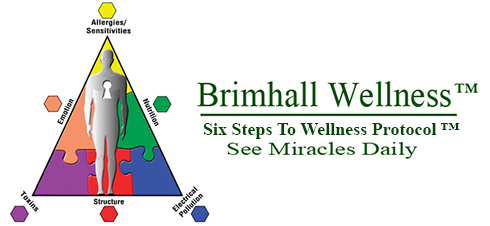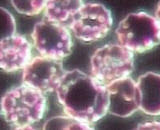
February 7, 2022 Puzzle Piece
The Silent Bacteria and Atherosclerosis
This weeks Puzzle Piece is by Ronald Grisanti D.C., D.A.B.C.O., D.A.C.B.N., M.S.
It is very well done and is an important insight.
It is sent without change from its original content.
Is it possible that a species of bacteria that commonly causes colds,
sinus infections, bronchitis, asthma or pneumonia can also be a silent
cause of atherosclerosis?
Atherosclerosis (also known as arteriosclerotic vascular disease or
ASVD) is a specific form of arteriosclerosis in which an artery wall
thickens. Many people are familiar with the common term, hardening of the arteries.
Atherosclerosis is the leading cause of heart attacks, stroke, and peripheral vascular disease.
The bacteria linked to heart disease is chlamydia pneumoniae.
 Chlamydia Pneumoniae
Chlamydia Pneumoniae
The medical research has shown that this bacteria can live quietly in the body for decades without causing any problems.
Unfortunately, we also now know that chlamydia pneumoniae has been found to be a cause of a silent infection leading to coronary arterial inflammation.
In one breakthrough study, chlamydia pneumoniae was found in 79% of people with carotid artery plaque vs. 4% in people with no plaque!
 Chlamydia pneumoniae was found in 79% of people with carotid artery plaque vs. 4% in people with no plaque!
Chlamydia pneumoniae was found in 79% of people with carotid artery plaque vs. 4% in people with no plaque! 
Even though the medical research has shown the existence of this
bacteria and arterial inflammation many cardiologists do not check to
see if chlamydia pneumoniae is present.
Three inflammatory lab markers should be part of any cardiovascular work-up. These include: fibrinogen, C-reactive protein (high sensitivity) and ferritin.
In the event any of these markers are elevated you should do some
detective work and see if chlamydia pneumoniae is present. I recommend
measuring the chlamydia antibodies by PCR at any commercial medical lab to establish that there is indeed an infection.
 The best treatment is azithromycin 500 mg twice a day (on an empty stomach) for 3-5 days 1-2 times a month for 6 months.
The best treatment is azithromycin 500 mg twice a day (on an empty stomach) for 3-5 days 1-2 times a month for 6 months.
I also would recommend consulting with your functional medicine practitioner for natural botanical treatments.
At the conclusion of the treatment, recheck to see if the inflammatory
markers have come down and repeat the chlamydia antibodies. Of course
don't forget to re-introduce probiotics to replace what the antibiotics
have destroyed.
References:
Bachmaier K, et al, Chlamydia infections and heart disease linked
through antigenic mimicry, Sci, 5406; 283: 1335-39. Feb 26. 1999
Linnanmaki E, et al, Chlamydia pneumoniae---Specific Circulating Immune
Complexes in Patients with Chronic Coronary Heart Disease, Circulation,
87:1130-30 4, 1993
Muhlestrin JB, et al, Increased incidence of Chlamydia species within
the coronary arteries of patients with symptomatic atherosclerotic
versus other forms of cardiovascular disease, J Am Coll Cardiol,
27:1555-61, 1996
Gupta S, et al, The effect of azithromycin in post-myocardial infarction
patients with elevated Chlamydia pneumoniae antibody titers, J Am Coll
Cardiol, 29:209 a, 1997
Gupta S, et al, Elevated Chlamydia pneumoniae antibodies, cardiovascular
events, and azithromycin in male survivors of myocardial infarction,
Circulation, 96:404-07, 1997
Vojdani A, A look at infectious agents as a possible causative factor in
cardiovascular disease: part II Lab Med, 4; 34: 5-9, April 2003
The information on this website is not intended to replace a one-on-one
relationship with a qualified health care professional and is not
intended as medical advice. It is intended as a sharing of knowledge and
information from the research and experience of Dr. Grisanti and his
community. Dr. Grisanti encourages you to make your own health care
decisions based upon your research and in partnership with a qualified
health care professional.
Visit www.FunctionalMedicineUniversity.com to find practitioners thoroughly trained in functional medicine. Look for practitioners who have successfully completed the Functional Medicine University's Certification Program (CFMP).
This content may be copied in full, with copyright, contact, creation
and information intact, without specific permission, when used only in a
not-for-profit format. If any other use is desired, permission in
writing from Dr. Grisanti is require
Yours in Health and Wellness,
John W Brimhall, DC, BA, BS, FIAMA, DIBAK
(Only registered customers can rate)
There are no comments for this product.